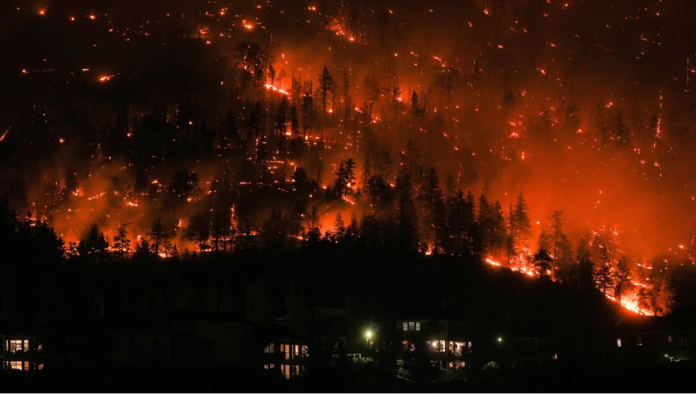Title: Devastating Infernos: Unraveling the Impact of
Canada, known for its pristine landscapes and breathtaking natural beauty, is facing a grim reality: a surge in the frequency and intensity of wildfires. In recent years, wildfires have wreaked havoc across the nation, leaving destruction in their wake. From British Columbia to Alberta, the effects of these infernos are not only damaging the environment but also impacting communities, wildlife, and the economy. This blog delves into the escalating issue of wildfires in Canada, exploring their causes, consequences, and the urgent need for proactive solutions.
The Alarming Rise in Wildfires
Over the past few decades, Canada has witnessed a disturbing trend of increasingly severe wildfires. The reasons behind this surge are multifaceted, encompassing both natural factors and human activities. Climate change, a prominent driving force, has led to warmer temperatures, prolonged droughts, and altered precipitation patterns, all of which create the ideal conditions for wildfires to thrive. The resulting dry vegetation becomes highly susceptible to ignition, and even the smallest spark can escalate into an uncontrollable blaze.
Human Activities: A Double-Edged Sword
While climate change contributes significantly to the worsening wildfire scenario, human activities cannot be overlooked. Unattended campfires, discarded cigarette butts, and even industrial activities can trigger wildfires. Additionally, urban sprawl encroaching upon wildland-urban interfaces increases the potential for fires to reach populated areas, exacerbating the danger and complexity of firefighting efforts.
Consequences for Environment and Wildlife
The environmental toll of wildfires is profound. Lush forests and pristine ecosystems are razed to the ground, leaving behind charred landscapes that take years, if not decades, to recover. Biodiversity loss is a pressing concern, as countless species of plants and animals are displaced or perish in the flames. The ash and debris from these fires can contaminate water bodies, affecting aquatic life and posing long-term challenges for water quality and supply.
Human Impact and Evacuation Challenges
The impact on human lives cannot be underestimated. Evacuations become a grim necessity, upending communities and causing psychological distress. Homes, businesses, and infrastructure are reduced to ashes, leaving families to rebuild their lives from scratch. Firefighters and first responders put their lives on the line to combat these blazes, working tirelessly under harsh conditions to save lives and property.
Economic Repercussions
The economic consequences of wildfires are far-reaching. The costs of firefighting efforts, emergency response, and infrastructure repair strain government budgets. Tourism, a significant source of revenue for many regions, takes a hit as travelers avoid areas engulfed in smoke and danger. Agriculture can suffer due to smoke exposure and disrupted transportation routes.
The Way Forward: Mitigation and Adaptation
Addressing the wildfire crisis requires a multifaceted approach that combines both mitigation and adaptation strategies. Mitigation involves reducing the factors that contribute to wildfires, such as promoting responsible land management, enforcing fire bans, and raising awareness about fire safety. Adaptation strategies encompass preparing communities for the inevitability of wildfires by designing fire-resistant buildings, establishing defensible spaces, and improving evacuation plans.
Conclusion
The escalating frequency and intensity of wildfires in Canada present a stark reminder of the urgent need for collective action. As a nation grapples with the devastating aftermath of these infernos, it becomes evident that a comprehensive approach that addresses the intertwined issues of climate change, human activities, and community preparedness is essential. By acknowledging the challenges posed by wildfires and committing to proactive solutions, Canada can strive to preserve its natural beauty, protect its communities, and secure a sustainable future for generations to come.

